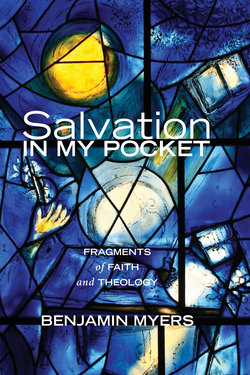Читать книгу Salvation in My Pocket - Benjamin Myers - Страница 12
На сайте Литреса книга снята с продажи.
Boredom
ОглавлениеThe cultural critic Neil Postman said that we are amusing ourselves to death. Our every waking moment is filled with pleasure, and yet, paradoxically, our lives are afflicted by a strange malaise. Never have we been more entertained; never have we been more bored.
On the whole, Christian theologians have harbored dark thoughts about boredom and have viewed it as a sin. Kierkegaard said that “boredom is the root of all evil,” while Jacques Ellul identified boredom—so “gloomy, dull, and joyless”—as a defining perversion of modern social life. Ellul’s view was close to that of Karl Barth, who similarly described “the signature of modern human beings” as neither serenity nor rebellion, but simply an “utter weariness and boredom.” In Barth’s view, “man is bored with himself,” and as a result “everything has become a burden to him.”
In contrast, the Italian philosopher Giorgo Agamben has offered a more positive assessment of the role of boredom in our lives. Human beings, he says, “cannot be defined by any proper operation,” and so our humanness can never be exhausted by any particular task. Agamben speaks of boredom as our “creative semi-indifference to any task.” This semi-indifference is linked to a theological truth about human beings: we are not reducible to our work; we will always exceed any given task. Or as Agamben puts it, boredom discloses the essence of a “simply living being.” Between our work and our being there lies a gap, and boredom marks that gap (Agamben, Means without End).
The gap between being and work is nowhere better depicted than in Andrew Marvell’s 1653 poem “Bermudas,” which portrays work in a primordial paradise:
Thus sang they, in the English boat,
An holy and a cheerful note,
And all the way, to guide their chime,
With falling oars they kept the time.
These unfallen human beings are not singing to keep time in their rowing, but rowing to keep time in their song. They are really working, but they exceed their work, and the labor is a needless embellishment, a fitting but unnecessary improvisation. Or to put it more simply, their real work is praise: the rowing of the oars forms the background rhythm of their song. In Agamben’s terminology, Marvell’s rower could be described as a “being-without-work”—he really works, but his work is superfluous, a celebration rather than a necessity.
But if boredom marks the gap between our being and our work, it also marks the gap between being and enjoyment. At least in the affluent West today, most of us would accept that life cannot finally be boiled down to work. The more sinister threat today is the reduction of life to leisure. A consumer society generates boredom in order to alleviate it. We are always bored, and we are always being rescued from our boredom. As Huxley predicted in Brave New World, our society has become one in which there is “no leisure from pleasure.” Again, we have closed the gap between being and work, except that now enjoyment has become our true and proper “work.”
To face both work and enjoyment with what Agamben calls a “creative semi-indifference” is, today, the gesture of the human being who stands before God and is recognized by God—the human being who is no longer under law (neither the law of work nor the law of enjoyment), but under grace. This human being, this person under grace, is the one whose work and play can never be taken too seriously. They are creative embellishments whose ultimate aim is celebration and praise. Like Marvell’s rowers, both work and play find their place only as they serve the modest role of keeping the time in our song:
And all the way, to guide their chime,
With falling oars they kept the time.
